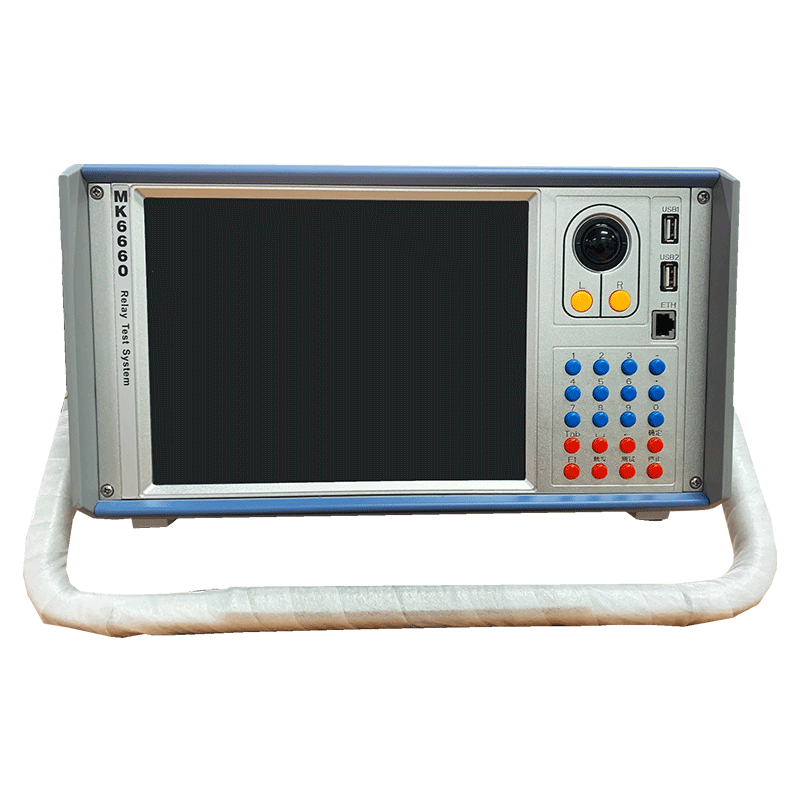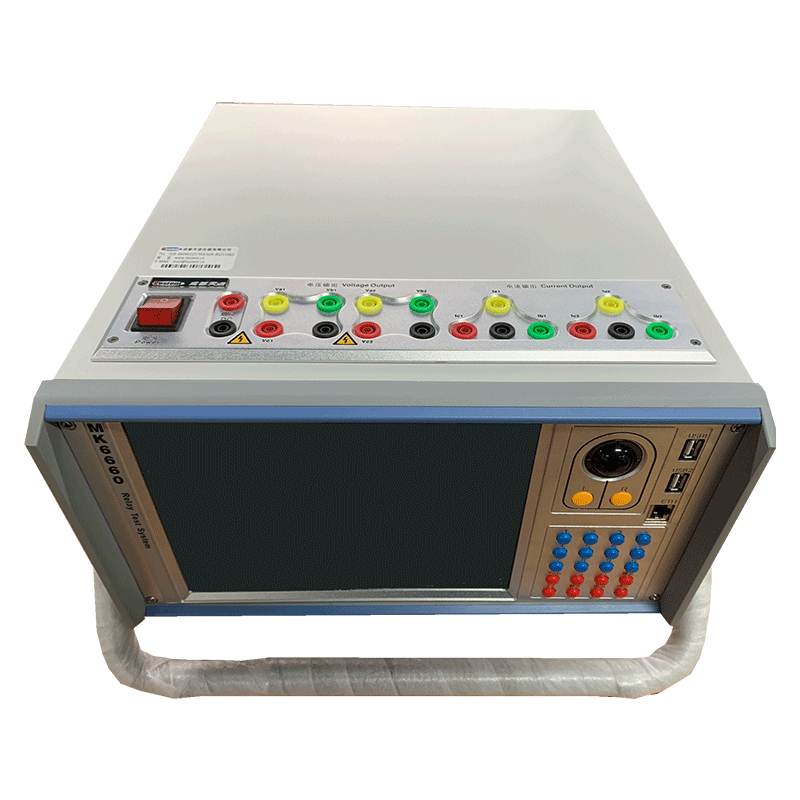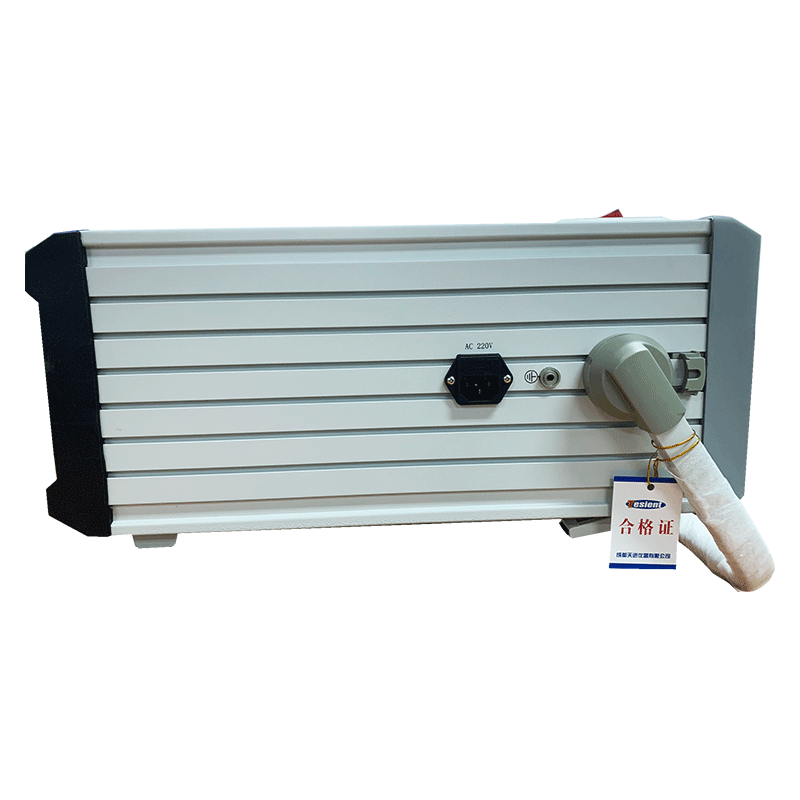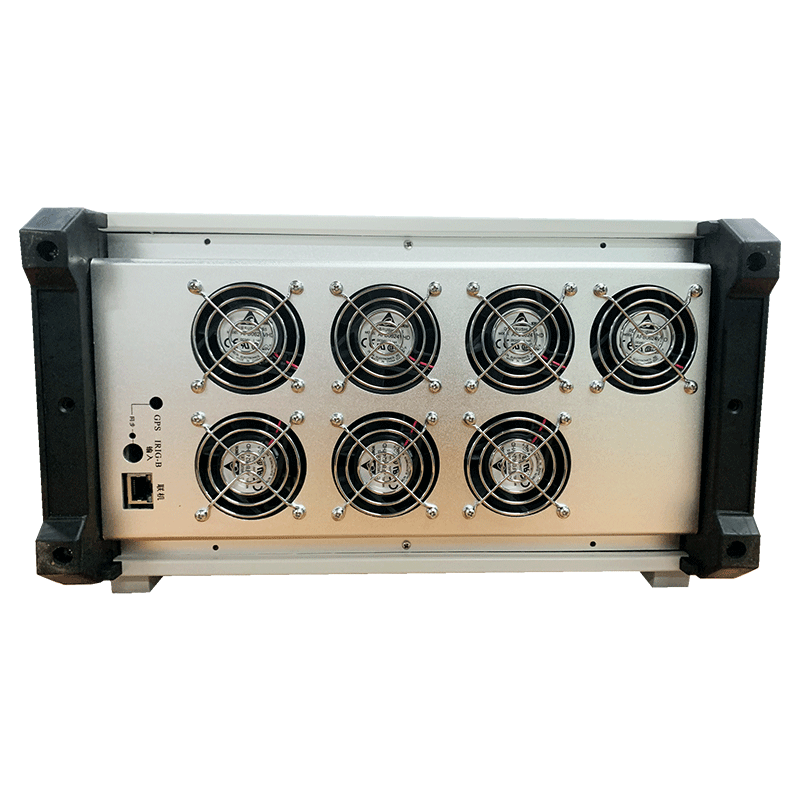MK6660 Relay Protection Tester Software
2022-11-15

Even for the same power components, with the development of the power grid, the impact of protection against mal operation and non rejection on the system will also change.


The relay protection device must have the function of correctly distinguishing whether the protected element is in normal operation or has a fault, and whether it is a fault within the protection zone or an external fault. In order to achieve this function, the protection device needs to be composed based on the characteristics of the changes in electrical physical quantities before and after the power system failure.
The main characteristics of power frequency electrical quantity change after power system failure are:
The current increases. In case of short circuit, the current on the electrical equipment and transmission line between the fault point and the power supply will increase from the load current to much more than the load current.
The voltage decreases. When interphase short circuit and ground short circuit faults occur, the interphase voltage or phase voltage value at each point of the system decreases, and the closer to the short circuit point, the lower the voltage.
The phase angle between current and voltage changes. During normal operation, the phase angle between current and voltage is the power factor angle of the load, which is generally about 20 °. In case of three-phase short circuit, the phase angle between current and voltage is determined by the impedance angle of the line, which is generally 60 °~85 °. In case of three-phase short circuit in the opposite direction, the phase angle between current and voltage is 180 °+(60 °~85 °).
The measurement impedance changes. The measured impedance is the ratio of voltage and current at the measuring point (protection installation location). During normal operation, the measured impedance is the load impedance; When the metal short circuit occurs, the measured impedance changes to the line impedance, and the measured impedance decreases significantly after the fault, while the impedance angle increases.
In case of asymmetric short circuit, phase sequence components occur, such as negative sequence current and negative sequence voltage components in case of two-phase and single-phase grounding short circuit; When single-phase grounding occurs, negative sequence and zero sequence current and voltage components appear. These components do not appear during normal operation.
By using the change of electrical quantity during short circuit fault, the relay protection of various principles can be formed.
In addition, in addition to the above protection of power frequency electrical quantity, there is also protection of non power frequency electrical quantity, such as gas protection.

Chengdu Tianjin Instrument Co., Ltd. was established in 2000. For a long time, the company has adhered to people-oriented, adhering to the core values of innovation, integrity and win-win. Consistently pursue high-quality, high-tech professional brand image, and provide customers with better products and services.
In 2001, the M2000 relay protection tester was launched, which took the lead in proposing a three-year free warranty and lifelong maintenance nationwide.
In 2002, the M2000 relay protection tester was approved by the Ministry of Science and Technology, and was supported by the National Innovation Fund for SMEs.
In 2003, it was rated as Chengdu Excellent Entrepreneur.
Since 2004, the company has begun to explore the international market. In 2005, the company has opened the situation in India, Thailand, Indonesia, Saudi Arabia and other countries, exporting more than 70 sets. In the competition with similar manufacturers in the world, it has gained a foothold and won a good international reputation.
In 2006, it was rated as a large taxpayer by Chengdu High tech Zone, and the company's system construction has made great progress.
In 2008, the company completed the research, development, production and sales of MF3000 optical digital relay protection tester, which is the first optical digital relay protection tester in China to pass the IEC61850 protocol test of the State Grid Corporation.
In 2013, the R&D, production and sales of MP3000F digital analog integrated relay protection tester were completed.
In 2015, the research, development, production and sales of TMU-1000 combined unit tester were completed.
Since 2011, the company has ranked first in sales for many years in a row and won the title of large taxpayer in Chengdu High tech Zone.
In 2019, the company successfully launched TS200 relay protection automatic test system and TS210 intelligent remote motor automatic test system.
The company has the ability to produce more than 1230 sets of various types of equipment annually, and has formed economies of scale. The excellent performance and after-sales service of our products have won a good reputation among users.
Zhourong Wang
wang_zr@tesient.cn
Tianjin Instrument cross border store

